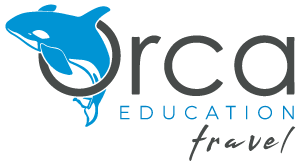Learn a new language
Gap Year
What is a Gap Year?
A gap year refers to a period of time, typically lasting several months to a year, where a student, recent graduate, or professional takes time off to take a break from their formal education or career to engage in various activities that promote personal growth, exploration and development. It is a deliberate pause in one’s academic or professional journey, allowing individuals to step outside their comfort zone, gain new experiences and pursue their interests and passions.
During a gap year, individuals may choose to travel, volunteer, work, intern, or engage in other activities that align with their goals and aspirations. It is a time for self-discovery, reflection, and the acquisition of valuable skills and experiences that can shape one’s future path.


Why take a Gap Year?
How to spend a Gap Year
There are countless ways to spend a gap year, depending on individual interests and goals. Some popular options include traveling to different countries, volunteering for a cause or organization, interning or working in a field of interest, learning a new language or skill, pursuing a passion project or hobby, or even taking courses or attending workshops to enhance knowledge and skills.
It is important to consider personal preferences, budget and desired outcomes when planning how to spend a gap year. Whether it is exploring new cultures, gaining practical experience, or simply taking time for personal growth and reflection, the key is to make the most of this unique opportunity and create a meaningful and fulfilling experience.
Popular Ideas for a Gap Year


Gap Year Destination
Canada is an excellent destination for a gap year, offering a diverse range of experiences and opportunities. From the stunning natural landscapes of the Rocky Mountains to vibrant cities like Toronto and Vancouver, Canada has something for everyone. During a gap year in Canada, individuals can explore the country’s rich cultural heritage, engage in outdoor activities such as hiking, skiing and kayaking, while fully immersing in the friendly and welcoming Canadian society. Additionally, Canada provides various, study, volunteering and work opportunities, allowing individuals to gain practical experience and contribute to meaningful causes. With its multiculturalism, natural beauty and abundant opportunities, Canada is an ideal destination for a fulfilling and enriching gap year experience.
How to pay for a Gap Year
Paying for a gap year can be achieved through a combination of strategies such as saving money, applying for scholarships and grants, working part-time or freelancing, fundraising, exploring financial aid options, participating in work exchange programs, and budgeting wisely. By being proactive and resourceful, individuals can find ways to finance their gap year and make their dream experience financially feasible.


Benefits of Gap Year
FAQ
What is the ideal timing for a gap year?
The ideal timing for a gap year varies for each individual. Some students choose to take a gap year after high school before starting college, while others may take it during their college years or after completing their undergraduate studies. It is important to consider personal goals, academic plans and any potential commitments before deciding on the timing that works best.
How will taking a gap year impact university admissions or future career prospects?
Taking a gap year can have a positive impact on university admissions and future career prospects. Admissions officers often view gap years as valuable experiences that contribute to personal growth, maturity and a broader perspective. It can also provide an opportunity to gain practical skills, explore career interests and enhance one’s resume. However, it is important to plan and use the gap year purposefully to make the most of the experience and effectively communicate its value to colleges and future employers.
What are the potential risks or challenges associated with a gap year?
While a gap year can be a transformative experience, there are potential risks and challenges to consider. These may include financial constraints, potential delays in academic progression, difficulty readjusting to a structured environment after a year off, or encountering unexpected challenges during travel or volunteer experiences. It is important to thoroughly research and plan the gap year, consider potential risks and have contingency plans in place to mitigate any challenges that may arise.How can parents support and ensure the safety of their child during their gap year?
Parents can support their child during their gap year by having open and honest conversations about goals, expectations and safety measures. They can help their child research and plan their gap year activities, including finding reputable programs or organizations, discussing budgeting and financial considerations and ensuring necessary travel documents and insurance are in order. Regular communication and check-ins can help parents stay informed about their child’s well-being and provide guidance and support as needed. Encouraging their child to maintain a balance between independence and seeking guidance when necessary can also help ensure a safe and successful gap year experience.
Ready for your Adventure Abroad?
Start PlanningRecommended by parents and students
Become a global citizen who proudly relies on Orca Education.
Get in touch


SCHEDULE A CALL


